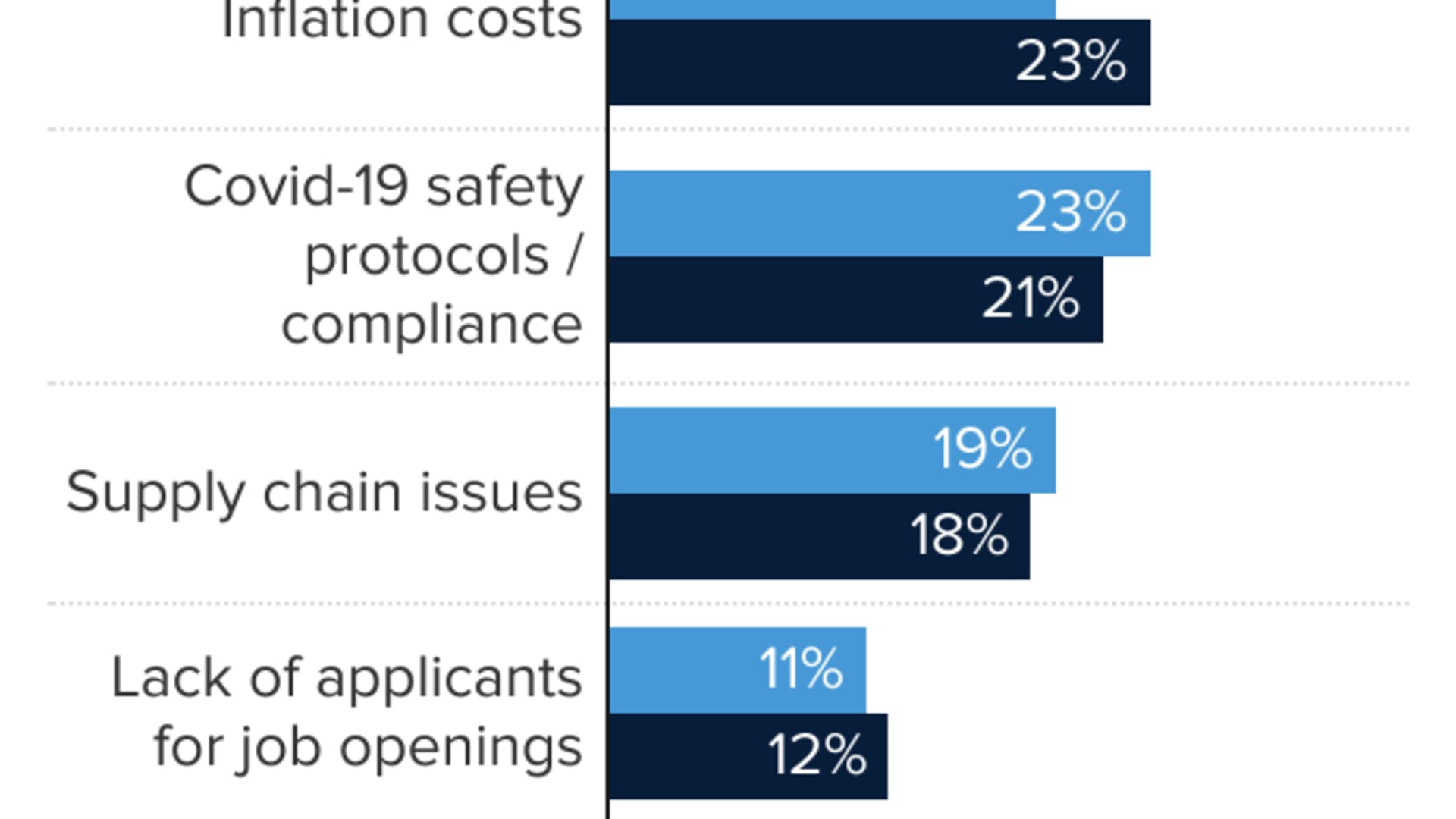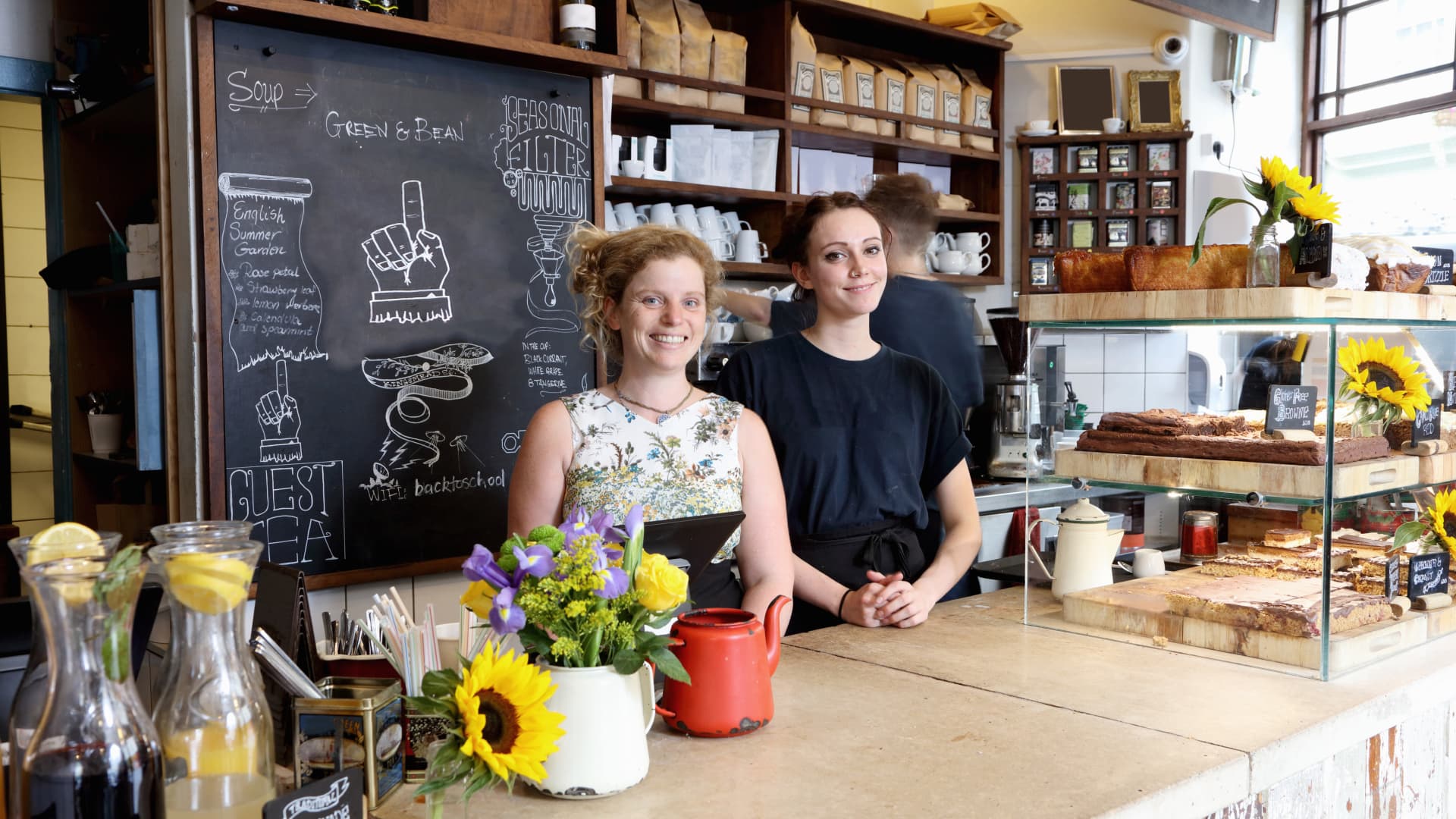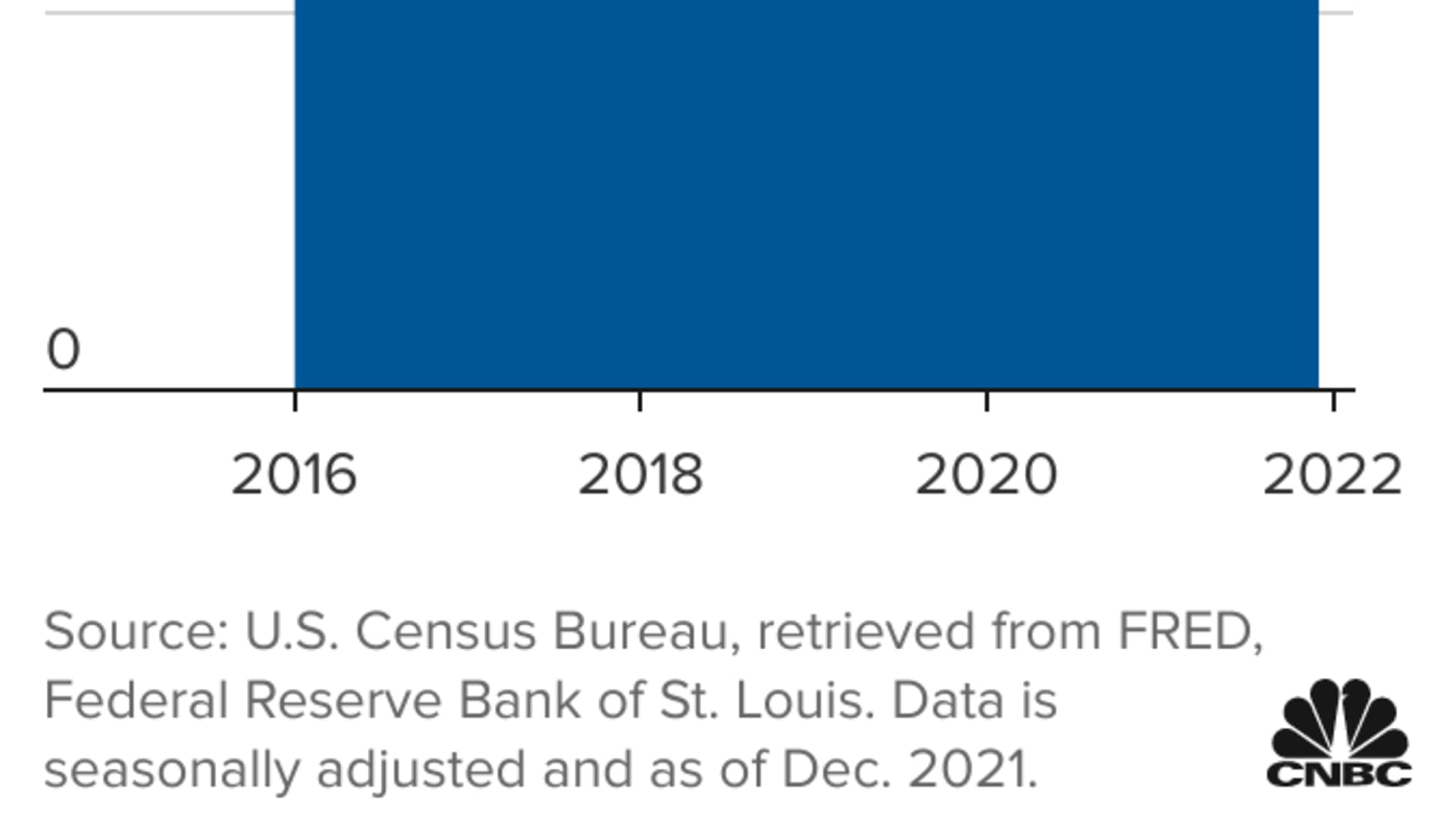
- Nearly three-quarters of U.S. small business owners said the recent rise in Covid-19 cases has negatively affected their revenue, according to a survey by Goldman Sachs.
- Generating enough revenue is the biggest post-pandemic challenge facing owners, a separate study found.
- Inflation and complying with Covid-19 safety protocols also were top concerns.
The Covid-19 pandemic has been far from easy for small business owner Briana Thompson.
Her boutique spin studio, Spiked Spin, in Brooklyn, N.Y., had only been open for a few months before the pandemic crisis hit. It wound up being shuttered for more than a year, reopening in May 2021.
Then, the Covid omicron variant took hold of the city, which forced her to close her doors again in early December for a few weeks.
Get Connecticut local news, weather forecasts and entertainment stories to your inbox. Sign up for NBC Connecticut newsletters.
"I felt that shock of fear again, where we were like, what does this mean?" said the 32-year-old small business owner.
Fortunately, the studio reopened at the beginning of January. But Thompson said the entire experience, which included the draining of her savings and a personal emergency fund, made her even more determined to bring health and wellness to underserved communities — her company's core mission.
Still, she knows there may be more disruptions on the horizon.
Money Report
More from Invest in You:
Leaving a steady job to start a business requires proper planning
The 'Zoom ceiling' Experts worry remote work will hold women back
Start-ups boomed during Covid. How some entrepreneurs found a niche
"As much as we are now prepared to understand the virus a bit, I know that we really don't," Thompson said. "I hope we can get it under some kind of control, but we are not moving in fear."
Fully 71% of U.S. small business owners said the recent rise in Covid-19 cases has negatively affected their revenue, according to a survey by Goldman Sachs. The poll of 1,466 Goldman Sachs 10,000 Small Business Voices participants was conducted by Babson College and David Binder Research from Jan. 10 to 13.
There were 31.7 million small businesses in the U.S. as of October, according to the U.S. Small Business Administration, or 99.9% of all firms. Eighty-one percent of small businesses have no paid employees while 19%, or 6 million firms, do.
To be sure, generating enough revenue is the biggest post-pandemic challenge facing owners, according to the Small Business Index, a report compiled every quarter by the U.S. Chamber of Commerce and MetLife. Inflation and complying with Covid-19 safety protocols also were top concerns.

Yet there is optimism. The Small Business Index notched its highest reading since the pandemic started when the latest report was conducted in October. Optimism was assigned a score of 63, up from a record low of 39.5 in the second quarter of 2020.
"Employers are stuck between this long-term positive outlook and recognizing that growth is on the horizon," while omicron and other temporary bumps remain along the road to recovery, said Luke Pardue, an economist at payroll and benefits provider Gusto, which services small and medium businesses.
Inflation worries ahead
For many small business owners, rising inflation means either increasing prices or taking a hit in profit. The Producer Price Index, which measures wholesale prices for goods and services, jumped nearly 10% in 2021, according to the U.S. Bureau of Labor Statistics.
In fact, three in five small business owners have had to raise prices in the past year, according to the Small Business Index. Some have taken out loans or decreased staff to manage higher costs brought on by inflation.
For Thompson, raising prices at Spiked Spin isn't an option, because she's trying to remain accessible to her community. Therefore, she's had to make some tough choices as she updates her current studio and plans to open a new one in Atlanta.
"I'm constantly weighing where do I make the best use of funds and how will I see the best return from a client perspective," she said.
Supply chain disruptions
What's more, the supply chain disruptions that have plagued small businesses since the pandemic began don't seem to be going away anytime soon.
Fully 69% of owners believe those issues have negatively affected their bottom line, the Goldman Sachs survey found. Most respondents also believe suppliers are favoring large businesses over small businesses due to the larger volume of their orders.
Hiring issues

Finding and retaining qualified employees is also a big challenge for small businesses right now. Of those currently hiring, 87% are finding it difficult to recruit qualified candidates for open positions and 97% said it is hurting their bottom line, according to the Goldman Sachs survey.
Small businesses, which can't always compete with big companies when it comes to wages, are being resourceful in working to attract and retain talent, Pardue said. That includes adding such things as financial benefits and instituting vaccine mandates.
"When owners are unable to raise wages, they can take these steps that protect workers' financial and physical health, and it results in increased retention and hiring," he said.
Among women business owners who have a vaccine mandate, 31% report having difficulty hiring, compared to 43% of those who don't require a vaccine, a survey by Gusto and the National Association of Women Business Owners found.
Cause for optimism
Despite the past turmoil and potential roadblocks ahead, 77% of small business owners are optimistic about the future of their business, according to the latest Small Business Index report.
That positive result can be attributed to entrepreneurs' confidence and innovative problem solving shown during the small business boom that began during the pandemic, said Tom Sullivan, vice president of small business policy at the Chamber of Commerce.
Nearly 5.4 million new business applications were filed in 2021, a new record, according to figures from the Census Bureau. That's up from 4.3 million in 2020.

"It took four months to bend the curve up during the pandemic," Sullivan said. "It's really remarkable.
"That leads to the optimism that despite all these headwinds …. that power of innovation, that power of entrepreneurs to solve problems and therefore, create businesses overwhelms the headwinds," he added.
Indeed, Thompson believes that optimism is a direct result of having survived the pandemic.
"I went through a phase of feeling very down, very uncertain, but we made it through," she said.
She's now moving forward with her plans to open that second studio in Atlanta and roll out digital offerings.
"I feel very excited for the future of the business," Thompson said.
SIGN UP: Money 101 is an 8-week learning course to financial freedom, delivered weekly to your inbox. For the Spanish version Dinero 101, click here.
CHECK OUT: Millennial mom whose passive income side hustle brings in $12,500/month: My goal was 'to quit a full-time job and work for myself' with Acorns+CNBC
Disclosure: NBCUniversal and Comcast Ventures are investors in Acorns.






